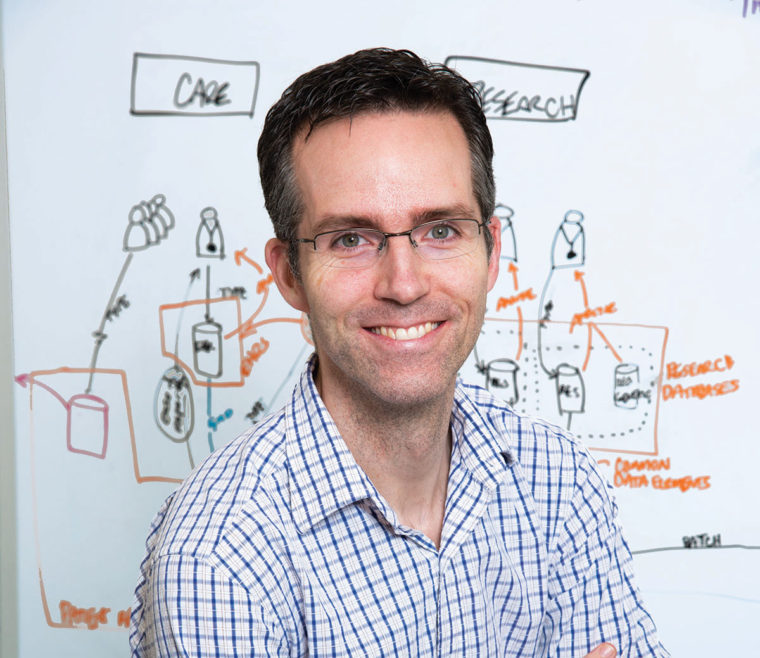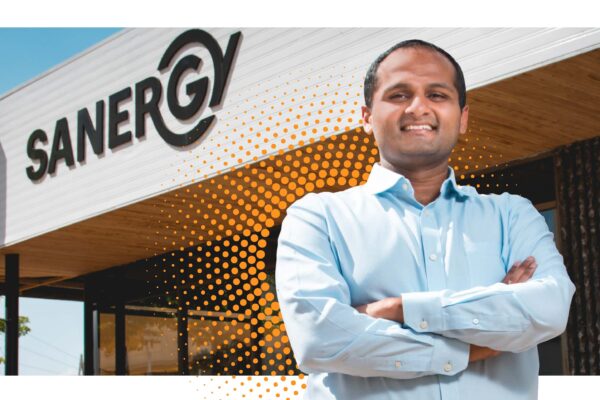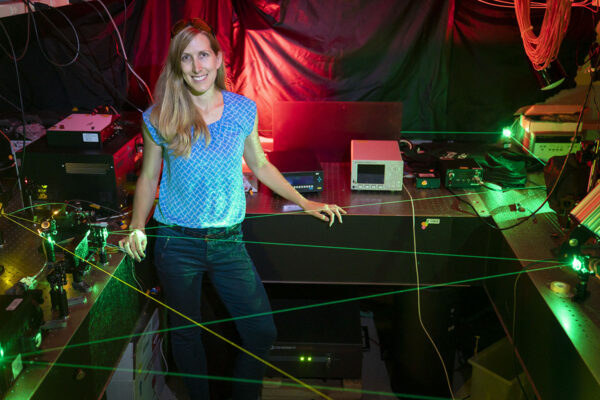Running a startup at the cutting-edge of ALS research isn’t how Mike Keymer, BS ’98, expected to use his degree in civil engineering.
But ever since his undergraduate years at Washington University, Keymer has found himself organizing people around a common vision. First, as Thurtene Carnival construction chair for Sigma Alpha Mu, he led his peers in building unconventional façades.
“You’re working completely with volunteer labor to get this done in a week, and it’s a ton of work,” Keymer recalls. “It was a really good learning experience about how to set a vision to inspire a workforce.”
After graduating, Keymer earned a master’s degree in construction management from MIT and moved to Washington, D.C., to work for Morse Diesel International, a general contractor. One of his early projects was helping reconstruct the Pentagon after it was struck on 9/11.
Planning to go into real estate development, Keymer headed to Northwestern University to study business. After earning an MBA, however, he went to work for a government contractor that makes tech that analyzes shape patterns, like handwriting and fragments of fingerprints — the “type of stuff you would see on CSI, but that didn’t really exist at the time,” Keymer says. One of his jobs was finding wider market appeal for the technology.
In 2012, he co-founded Topspin Labs, an incubator that helps companies create spinoffs. Topspin works with organizations whose technologies have been proven in one industry but could have potential business applications in another. Those companies can come to Topspin, and if the idea seems viable, the two will partner to co-found a startup. Keymer and his team step in to lead that startup in its initial stages, and then they transition the growing company into the hands of new leaders for the long term.
One of those new startups is Origent Data Sciences, which is using data science to improve clinical research for neurological and neuromuscular diseases such as ALS and Parkinson’s disease. Origent’s technology models how a patient’s symptoms are likely to progress, based on many factors of the patient’s disease. Researchers can then tell if a subject is responding to the drugs they’re testing, or if the disease progression simply slowed naturally.
Keymer has been Origent’s CEO since 2013, and its technology is already being used in human clinical trials.
“It’s heavy scientific, mathematical work, and it’s working in an industry that doesn’t adopt new technologies in a very fast way,” Keymer says. “But with a small team, we’ve done a lot of powerful work in a short period of time.”
Origent has developed predictive models for a dozen symptoms, created methods to optimize the success of human clinical trials and helped accelerate cures getting to market. Origent is also branching out to accelerate clinical trials in other diseases such as Huntington’s and Alzheimer’s and to help doctors use predictive models for improving patient care.
Keymer leads a team of developers and data scientists, managing everything from business development and accounting to human resources and other operational responsibilities.
“We’re very much in the phase of figuring out our niche,” explains Dave Ennist, Origent’s chief science officer. “Mike’s a terrific person to be doing that, because he takes in all the views, synthesizes them and then gives back what he thinks.”
For now, Origent and Topspin are just some of many things keeping Keymer busy. He lives in Arlington, Virginia, with his wife, Kimberly, BA ’99, and their 7-year-old daughter, Loren.
Keymer hopes to continue growing Origent into a major business, but he’s prepared to hand over the reins.
“When it gets to a certain stage, I know it will be the right time for me to step aside for someone else to grow it faster than I’m able. My job will then be to start working on the next company,” Keymer says.



